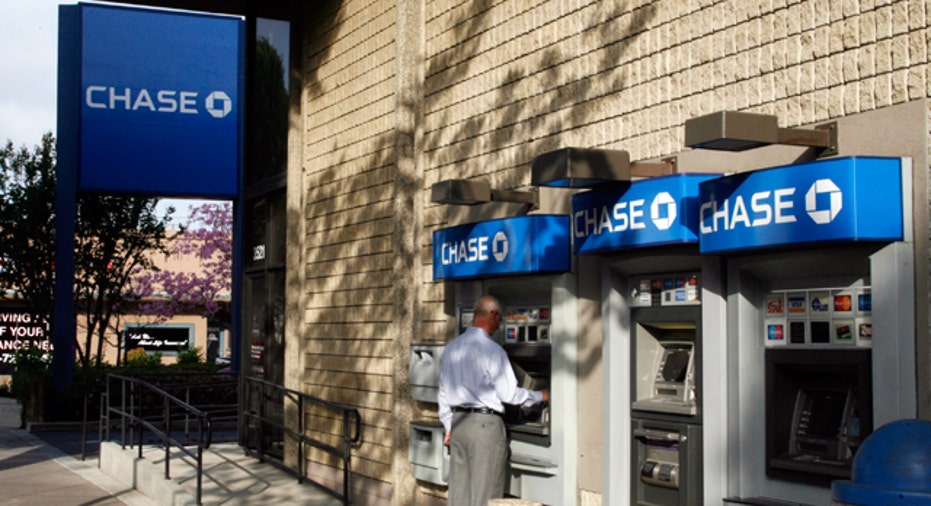Investors Brace for Bank Earnings

Lower for longer. That is the outlook for bank earnings as much as it is for interest rates.
As second-quarter bank earnings season gets under way this week, the big question isn't whether firms will miss or beat expectations.
Rather, after the U.K.'s vote to leave the European Union, it is whether bank stocks will be dead in the water for another year or two.
"I think the second quarter is going to be just fine," said Credit Suisse Group AG analyst Susan Roth Katzke. "The question is...how much does the second quarter matter in terms of where we go from here?"
Not very much, it seems. What does matter is that long-term bond yields have plummeted since the Brexit vote and that the U.S. Federal Reserve isn't expected to raise short-term rates soon.
The yield on the 10-year U.S. Treasury note twice struck closing-low records last week. It ended Friday at 1.366% but rose slightly on Monday.
Before Brexit, many analysts and bankers had thought the Fed would raise interest rates throughout this year and next. Now, some analysts have pushed back their expectations for such an increase until 2018.
That is dashing hopes that banks soon would emerge from a yearslong grind in which superlow interest rates have weighed heavily on profits and valuations.
"It's been years of forever trimming estimates slightly, slightly disappointing results," said Oppenheimer analyst Chris Kotowski. "Even the analysts and portfolio managers who are overweight -- the banks hate them."
Last week, Mr. Kotowski started predicting a slight decline in investment-banking and trading revenue in forthcoming quarters, instead of a slight increase.
To be fair, Brexit could provide a few short-term boosts to the banks. The uncertainty it caused produced a flurry of currency moves, which could help banks' second-quarter trading results. And before the vote, capital-markets activity seemed to have stabilized after a horrendous start to the year.
Also, the drop in interest rates has spurred mortgage lending. Analysts at Keefe, Bruyette & Woods predicted last week that mortgage revenue at regional banks in the second quarter would rise 19% over the previous one.
Evercore ISI analyst John Pancari forecasts that higher lending profit and stable fee income will lift earnings at regional U.S. banks about 2% in the second quarter from a year earlier.
For banks in the KBW Nasdaq Bank Index, which is made up of bigger banks, analysts expect an average 0.9% decline in second-quarter earnings from a year earlier, according to FactSet data.
That is down slightly from before the Brexit vote; at the end of May the expectation was for earnings to be flat.
Analysts expect 13 of the KBW's 24 members to show positive earnings growth and 11 to record lower earnings.
The second quarter appears gloomier for the four biggest U.S. banks: J.P. Morgan Chase & Co., Bank of America Corp., Wells Fargo & Co. and Citigroup Inc.
Their earnings as a group are forecast to drop by about 14%, on average, in the second quarter, according to FactSet.
That decline is driven by an expected 24% drop in profit at Bank of America versus a year earlier and a forecast 23% fall at Citigroup.
Those projections reflect Brexit: Analysts lowered second-quarter earnings predictions for Bank of America by 8% and for Citigroup by 5% since June 23, the day of the vote.
But even before Brexit, profit forecasts had been dropping since the year's start. Analysts have reduced estimates for J.P. Morgan earnings, for example, to $1.42 a share versus $1.53 on Dec. 31.
Analysts have also lowered their estimates for 2017 earnings for the four banks by about 10% since last December.
For banks large and small, analysts are taking a dimmer, post-Brexit view of full-year earnings for 2016 and 2017. And that is likely to weigh further on share prices that have already been under pressure this year.
The KBW index is down about 5% since the Brexit vote. It is down 11% since the start of the year, while the S&P 500 is up 4.6%.
Such a drubbing would often attract value hunters. But investors are torn on whether the lower prices make bank stocks a compelling buy.
"Everybody knows that the banks are cheap," said Ken Goodreau, director of research at WhaleRock Point Partners, an investment-management and institutional-consulting firm in Providence, R.I., that has trimmed its bank holdings in recent years. "It's hard to figure out if just being cheap is enough."
Mr. Goodreau said he isn't sure whether the biggest banks are nimble enough to adjust to the sudden swings in rates and that he is wary of the banks' exposure to European real estate.
"I'd rather wait and see," he said.
Write to Christina Rexrode at christina.rexrode@wsj.com and Rachel Louise Ensign at rachel.ensign@wsj.com



















